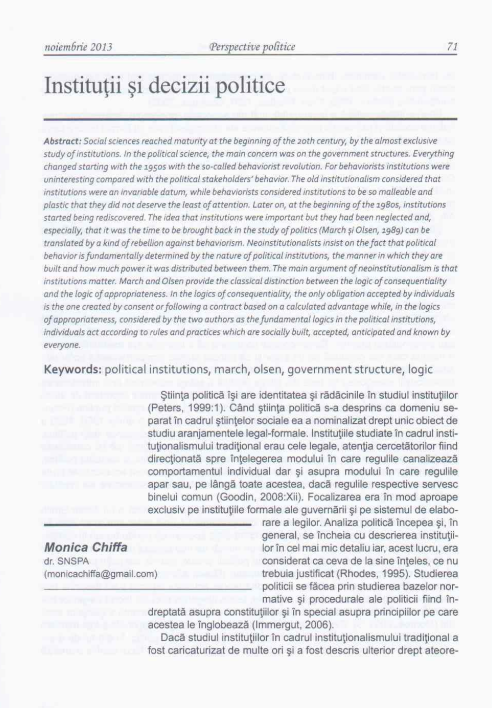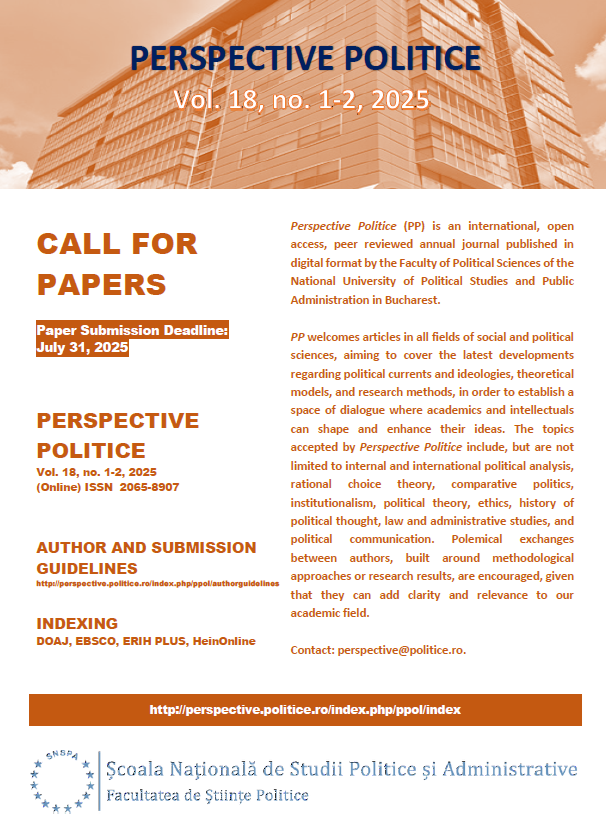Institutii si decizii politice
Abstract
Social sciences reached maturity at the beginning of the 20th century, by the almost exclusive study institutions. In the political science. the main concern was on the government structures. Everything changed starting with the t95os with the so-called behaviorist revolution. For behaviorists, institutions were uninteresting compared with the political stakeholder’s' behavior. The old institutionalism considered that institutions were an invariable datum, white behaviorists considered institutions to be so malleable and plastic that they did not deserve the least of attention. Later on. at the beginning of the ag8os, institutions started being rediscovered. The idea that institutions were important but they had been neglected and, especially, that it was the time to be brought back in the study of politics (March si Olsen 1989) can be translated by a kind of rebellion against behaviorism. Neoinstitutionalists insist on the fact that political behavior is fundamentally determined by the nature of political institutions, the manner in which they are built and how much power it was distributed between them. The main argument of neoinstitutionatism is that institutions matter. March and Olsen provide the classical distinction between the logic of consequentiality and the logic of appropriateness. In the logics of consequentiality, the only obligation accepted by individuals is the one created by consent or following a contract based on a calculated advantage while, in the logics of appropriateness, considered by the two authors as the fundamental logics in the political institutions, individuals act according to rules and practices which are socially built, accepted. anticipated and known by everyone.




